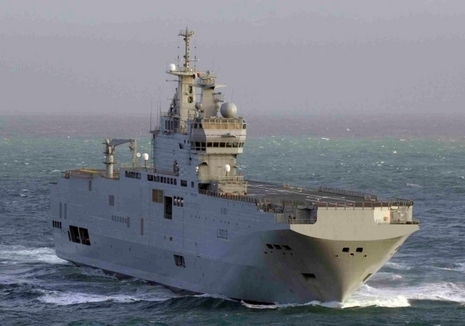
Senator Richard Lugar has commissioned the Congressional Research Service (CRS) to examine the sale of military equipment and technology by NATO allies to Russia. NATOSource has a copy of his letter to the CRS, which specifically mentions “approved or contemplated” sales by France, Germany, and Italy. Lugar is concerned by statements from Russian officials “that certain equipment could be used for planning against U.S. partners and allies.”
Some of the questions Lugars has commissioned the CRS to answer are:
· To what extent are our European NATO allies viewing the sales as a predicate to initiating similar sales to China?
· What effect do these sales have on NATO cohesion? Could any of the equipment provided be used in Russian training exercises that often simulate attacks on NATO territory?
· What, if any, operational risks are posed to the NATO Alliance as a result of such sales?
· Should there be a formalized role for the NATO organization in discussing bilateral arms deals between allies and the Russian Federation, potentially under Article Four of the North Atlantic Treaty?
The most controversial transfer of advanced military equipment and technology has been the French $1.7 billion sale of two Mistral class amphibious assault ships to Russia. This deal has sparked protest from other members of Congress who oppose the selling of advanced NATO weapon systems to Russia. The Chair of the House Foreign Affairs Committee, Ileana Ros-Lehtinen, warned that; “This sale threatens to shake the NATO alliance to its core, bolstering Russia’s offensive military capabilities as it intensifies its campaign of intimidation against neighboring countries.”
While France is comfortable selling advanced military capabilities to a geographically distant customer, NATO allies bordering Russia have expressed strong disagreement over the deal, particularly as it threatens to alter the military balance of power in their region. Latvia’s Minister of Defense Artis Pabriks, revealed that his country may have to seek NATO support to deal with this threat. “If these helicopter carriers appear in the Baltic Sea, Latvia will ask France and NATO in general for military and political support… The size of this support should be adequate to restore the balance of forces in the region.” Other NATO allies, such as Lithuania’s Defense Minister Rasa Jukneviciene, have criticized the Mistral sale as, “a mistake.”
There is further evidence that the Franco-Russian arms trade is upsetting the military balance of power in the Baltic Sea. Even neutral Sweden has spoken of the impact of the Mistral Effect on its national security planning. According to Swedish Defense Minister Sten Tolgfors; “Mistral will contribute to the development of Russian military capability and we will need to relate to this as well. A strong Swedish air force with sea targeting capabilities and modernization of our submarine fleet are some of the decisions that I see as relevant when the effect of the Mistral is discussed.” It is not in the interest of the U.S. and all of our European allies for short-sighted economic deals such as the Mistral sale to endanger regional security and perhaps create a needless arms race along NATO’s periphery. (photo: defpro.com)
Image: defpro%2012%2029%2010%20Mistral_0.jpg
